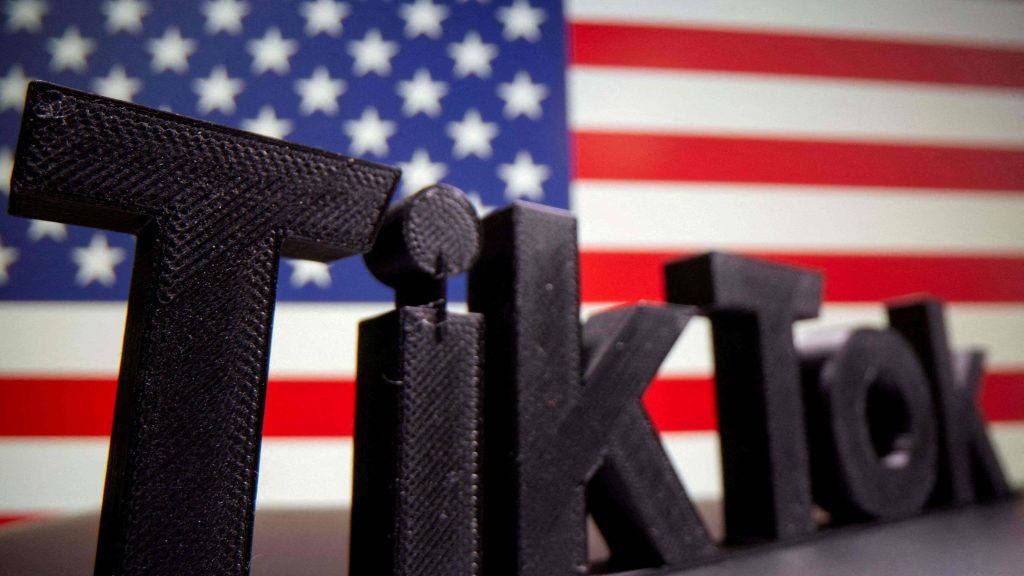
TikTok’s chief executive will tell lawmakers the Chinese-owned short video app with more than 150 million American users has never, and would never, share U.S. user data with the Chinese government amid growing U.S. national security concerns.
“TikTok has never shared, or received a request to share, U.S. user data with the Chinese government. Nor would TikTok honor such a request if one were ever made,” CEO Shou Zi Chew will testify on Thursday, according to written testimony posted on Tuesday by the House of Representatives Energy and Commerce Committee.
He added that TikTok’s parent company ByteDance is not owned or controlled by any government or state entity. “Let me state this unequivocally: ByteDance is not an agent of China or any other country,” Chew will say to the committee.
TikTok’s critics fear that its U.S. user data could be passed on to China’s government by the app and prompted growing calls to ban the app by U.S. lawmakers. Last week, TikTok said the Biden administration demanded that its Chinese owners divest their stake in the app or it could face a U.S. ban.
“Bans are only appropriate when there are no alternatives. But we do have an alternative,” Chew’s testimony said.
TikTok’s testimony before Congress on Thursday comes in the face of growing calls for the short video app to be banned across America and serves as one of the Chinese company’s most-detailed rebuttals to the accusations against it.
TikTok has said it has spent more than $1.5 billion on what it calls rigorous data security efforts under the name “Project Texas” and has tried to convince lawmakers and the Biden administration to support the plan.
The Committee on Foreign Investment in the United States (CFIUS), a powerful national security body, had unanimously recommended in 2020 that ByteDance divest TikTok.
Under pressure from then-President Trump, ByteDance in late 2020 unsuccessfully sought to finalize a deal with Walmart and Oracle to shift TikTok’s U.S. assets into a new entity and Trump then lost court battles seeking to ban TikTok.
The video app has spent more than two years in talks with CFIUS seeking to reach an agreement on protecting U.S. user data.
TikTok has formed a special-purpose subsidiary, TikTok U.S. Data Security (USDS), that currently has nearly 1,500 full-time employees and contracted with Oracle to store TikTok’s U.S. user data.
“Oracle has already begun inspecting TikTok’s source code and will have unprecedented access to the related algorithms and data models,” Chew’s testimony said.
Chew said when the process is complete “all protected U.S. data will be under the protection of U.S. law and under the control of the U.S.-led security team. Under this structure, there is no way for the Chinese government to access it or compel access to it.”
The company said it had started this month to delete U.S. user protected data in data centers in Virginia and Singapore after it started routing new U.S. data to the Oracle Cloud last year. Chew’s testimony said it expects this process to be completed later this year.
Chew’s testimony says 60% of ByteDance is owned by global institutional investors including Blackrock, General Atlantic, and Sequoia, about 20% by the company’s founders, and about 20% owned by its employees “including thousands of Americans.”
TikTok said on Monday that more than 150 million people in the United States use TikTok on a monthly basis after saying in 2020 that 100 million Americans used the app. Chew’s testimony says the average user today is an adult well past college age.
“While users in the United States represent 10% of our global community, their voice accounts for 25% of the total views around the world,” Chew’s testimony says.
Chew says current versions of the app do not collect precise or approximate GPS information from U.S. users.
WASHINGTON (Reuters)
Inside Telecom provides you with an extensive list of content covering all aspects of the Tech industry. Keep an eye on our News section to stay informed and updated with our daily articles.